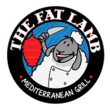How to Include Healthy Foods in Your Mediterranean Diet
If you’re looking for a healthier way to eat, try a Mediterranean food list. This type of diet reduces saturated fat, which is found in red processed meats, dark meat poultry, and full-fat dairy products. Instead, monounsaturated fats are promoted, as are more natural sources of omega 3 fatty acids like wild salmon. Wild salmon is not only a great main dish but can be used as an ingredient in salad dressings or as a topping for a salad.
Fresh vegetables and fruits
Typically, the Mediterranean diet is low in saturated fats. Instead, it emphasizes consuming monounsaturated fats like olive oil. Other common sources of healthy fats are nuts and seeds. They have diverse levels of fatty acids and may help lower the risk of heart disease and maintain healthy HDL cholesterol levels. So, how do you include these foods in your diet? Read on for some tips and ideas!
Whole grains
Most of the food in the Mediterranean region is made from whole grains. This is a good choice for the health-conscious because whole grains are better for you than refined ones. The varieties range from smoky freekeh to sweet polenta. And there’s no need to stick to boring white rice. Mediterranean cuisine incorporates whole grains into its cooking for added flavor and nutrition. But if you’re not sure how to cook whole grains, keep reading to learn more about their preparation and benefits.
Nuts
Adding nuts to your diet is a great way to increase the amount of plant-based fats and nutrients you consume. Most traditional Mediterranean diets include nuts, and they are rich in heart-healthy unsaturated fatty acids, fiber, vitamins, minerals, and antioxidants. In fact, nuts are one of the most nutritionally-dense foods available. They are also an essential part of the cuisines of the Mediterranean, and they add a unique flavor and richness to many dishes.
Legumes
If you’re trying to stick to a Mediterranean food list, you may want to add more vegetables to your daily menu. Try adding three to four servings of vegetables to your daily menu. Legumes are a good source of fiber and protein and are low in fat. Legumes include dried peas, beans, chickpeas, and lentils. You should also drink a moderate amount of red wine to the mix as part of your meal.
Herbs
If you’re a lover of Mediterranean cuisine, you might want to add some of the many Mediterranean herbs to your food list. These culinary staples have many health-boosting benefits, including antioxidants. You’ll be amazed at how many of them are also found in other regions of the world. Here are some of the most common herbs found in Mediterranean dishes. You can also add these to your cooking to add an extra punch. But be sure to remember to cook them carefully, since cooking them will reduce their antioxidant content.
Greek yogurt
You may wonder if Greek yogurt is on a Mediterranean food list. Though dairy is not a major food group in the Mediterranean diet, it is allowed on the Mayo Clinic’s heart-healthy eating plan. We asked a registered dietitian to weigh in on the question. She said that dairy is good for you and that Greek yogurt is a good choice. To find out more about Greek yogurt and the Mediterranean diet, read on.
Ancient grains
Adding ancient grains to your diet is a great way to improve your health and lower your risk of chronic disease. They also contain a significant amount of fiber and other nutrients. Some of these grains are naturally gluten-free, such as quinoa. Other options include millet, amaranth, buckwheat, and teff. You can also make crackers with them or include them in salads.

